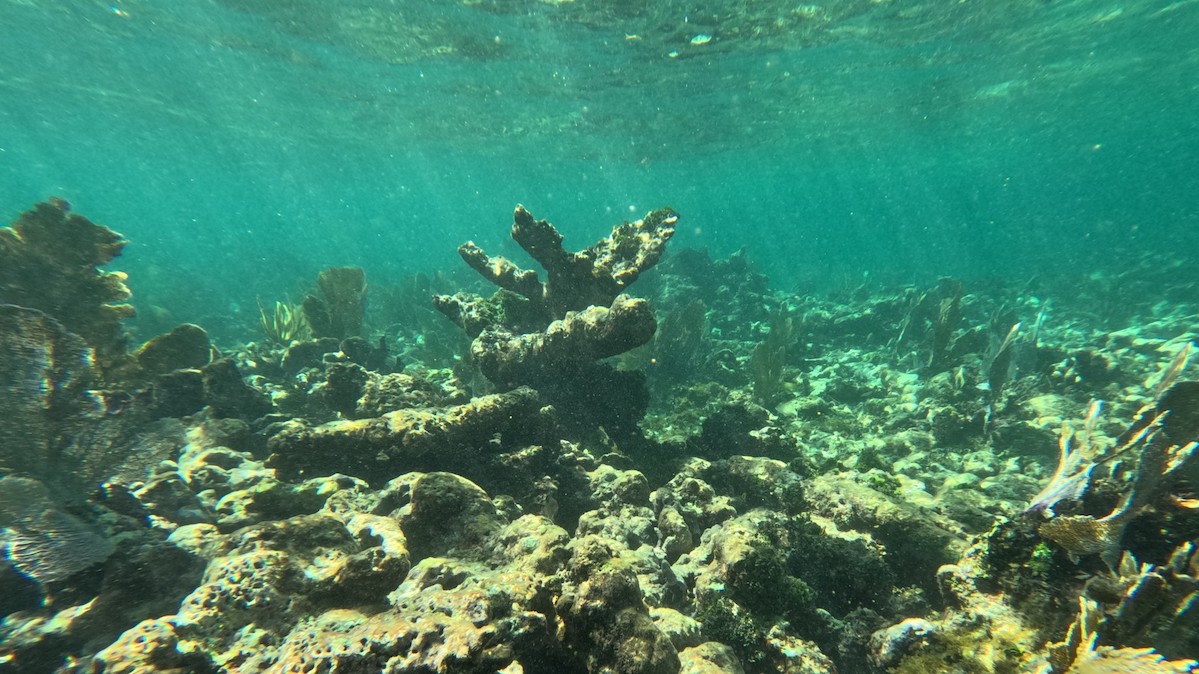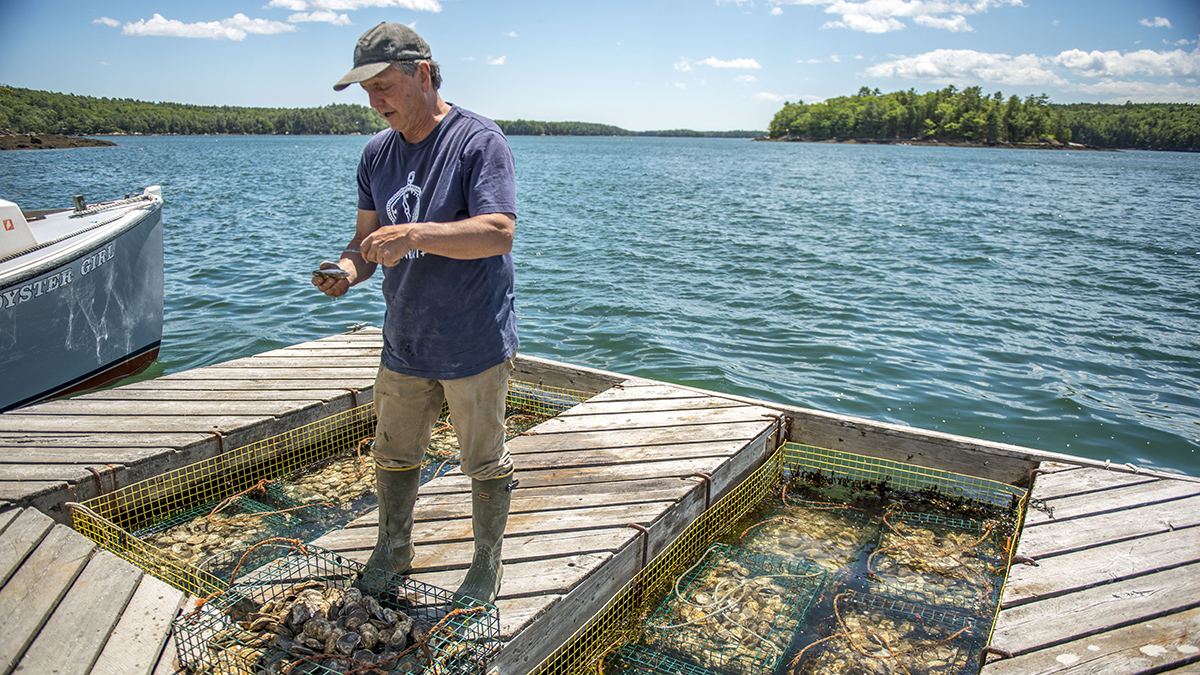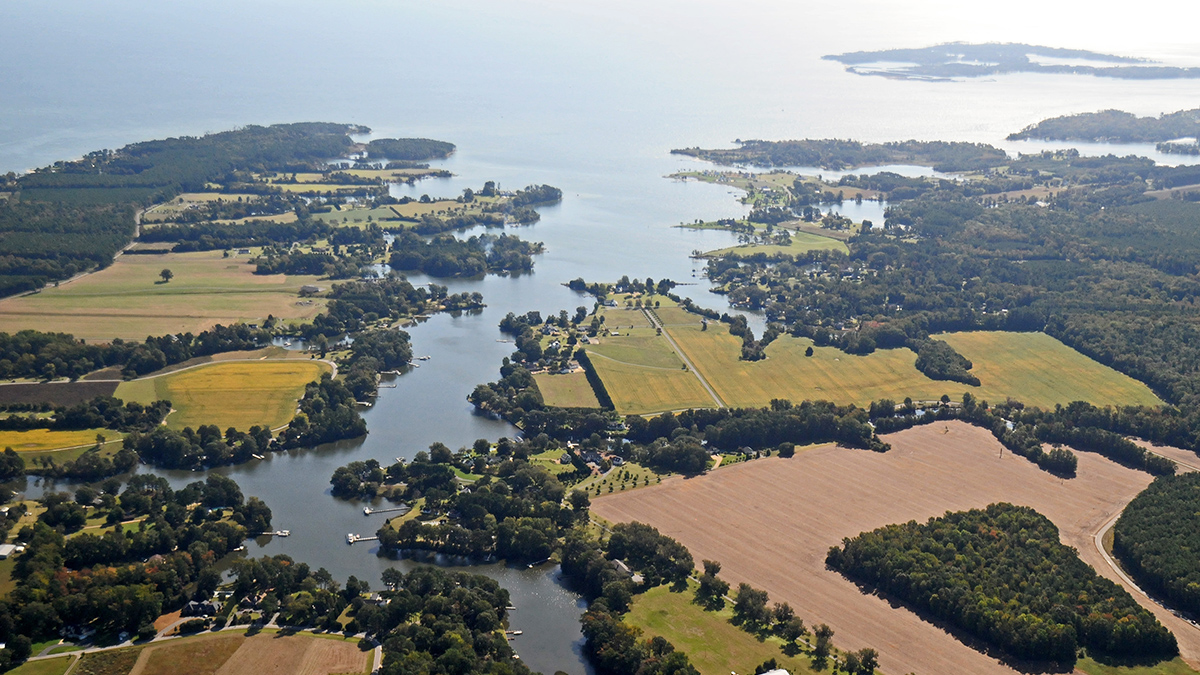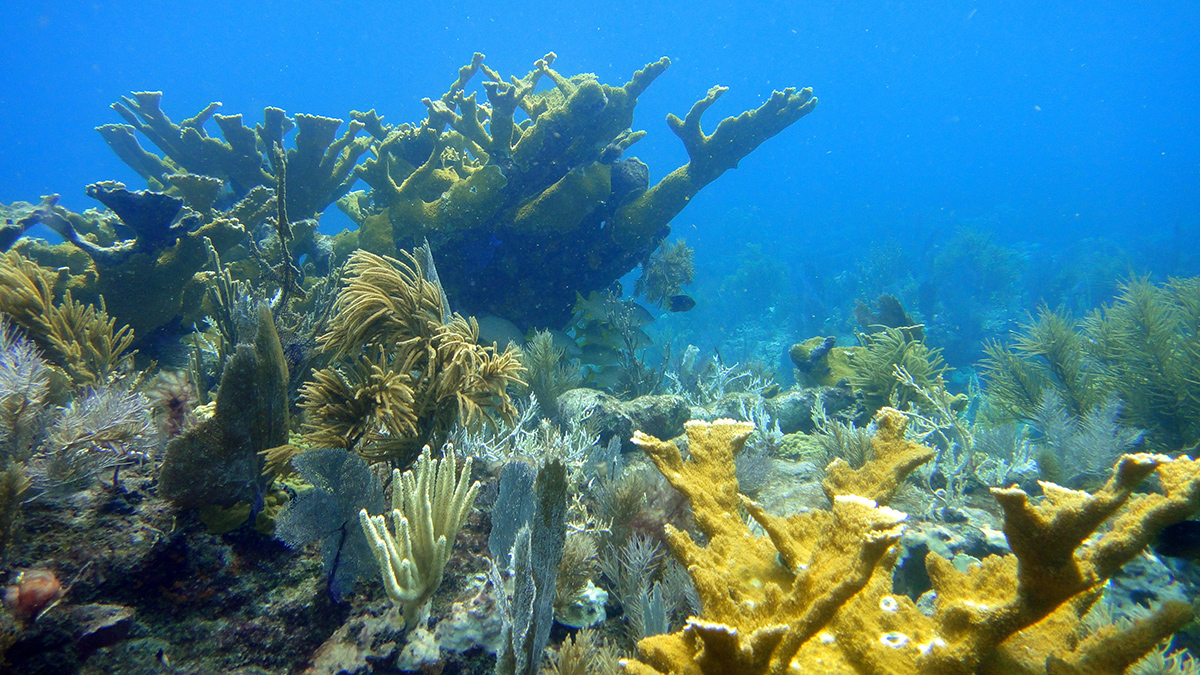Coral reef growth rates in the tropical western Atlantic have slowed to a fraction of what they once were, erasing coastal protection benefits they once offered.
ocean acidification
Warming Gulf of Maine Buffers Ocean Acidification—For Now
Scientists constructed a 100-year history of acidity in the Gulf of Maine. They expected coastal variability but were surprised by what they didn’t find: a strong anthropogenic signal.
River Alkalinization and Ocean Acidification Face Off in Coastal Waters
Factors ranging from rainfall to nutrient runoff to changing mining and agricultural practices drove decades-long pH trends in the Chesapeake Bay.
Corals Are Simplistic When Conditions Are Acidic
Increasing ocean acidity could spell trouble for fish that depend on corals’ many branches for protection.
In Hot Water and Beyond: Marine Extremes Escalate
A new study suggests marine life is increasingly faced with triple-threat events in which extreme water temperature, low oxygen levels, and acidification converge.
La química del agua somera podría hacer a los arrecifes más resistente a la acidificación del océano
Estudios de los Cayos de Florida revelan variaciones geográficas y temporales en los efectos de la acidificación en corales.
La acidez del océano antártico aumentará rápidamente a finales del siglo
Nuevos estudios muestran que los niveles de acidez podrían llegar a duplicarse para el 2100, poniendo en peligro los ecosistemas frágiles del gélido Océano Austral.
Antarctica’s Ocean Acidity Set to Rise Rapidly by Century’s End
New research shows acidity levels could as much as double by 2100, imperiling fragile ecosystems in the frigid Southern Ocean.
Metals Could Reveal Corals’ Past Lives
Examining the role of stable metal isotopes in biological activities such as photosynthesis provides a promising new avenue of research into how coral responds to environmental stressors.
Shallow Seawater Chemistry May Make Reefs More Resistant to Ocean Acidification
Research from the Florida Keys reveals geographic and seasonal variation in the effects of acidification on corals.










